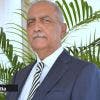Since Sunday 3rd April 2016, the case of “Panama Papers” is bringing new revelations every day. Political leaders, sports persons, celebrities or businessmen are finding themselves caught in this massive leak of documents, which comes from a firm of lawyers based in Panama. These millions of files have helped uncover a vast system of tax evasion on a global scale. News on Sunday explains the essential and the basics.
The “Panama Papers” are making world headlines. For those who do not understand what is happening, this is the largest data breach to date. Nearly 380 members of the International Consortium of Investigative Journalists, including journalists of the French TV programme “Cash Investigation”, have for months investigated about 11.5 million files from the Mossack Fonseca firm, a Panamanian law firm specialising in domiciliation of companies in tax havens.
These files, which include contracts, emails or other records, reveal the existence of no less than 214,488 offshore structures created or managed by this firm between 1977 and 2015. These companies would have been used by thousands of nationals across almost the entire world to avoid taxes. Among them are famous athletes, businessmen and politicians.
About Mossack
Mossack Fonseca is the world’s fourth biggest provider of offshore services. It has acted for more than 300,000 companies. There is a strong UK connection. More than half of the companies are registered in British-administered tax havens, as well as in the UK itself.
What is the role of the Mossack Fonseca firm?
Mossack Fonseca is a law firm and financial tax expert specialising in the implementation of financial packages for companies and individuals. Against remuneration, it creates dummy companies and provides nominees for customers wishing to remain discreet. With over 500 employees, as its website claims, Mossack Fonseca is active worldwide and has over 40 offices in Europe, China and even in South America. The company was founded in 1977 by Jürgen Mossack, son of a former officer in the Waffen-SS, according to US intelligence, and Ramon Fonseca Mora, that Le Monde described as close to “political circles, including dictators”.
Legal or illegal?
It is not forbidden to have recourse to companies without any real economic activity in tax havens. But this can be done only under very specific conditions: the company should not hold a bank account and should not derive income from this structure. Suffice to say that it is of limited value. To establish such a device is however much more advantageous to hide under a tangle of companies relating together its assets to the tax authorities or to launder money of dubious provenance. This is of course completely illegal. Nevertheless, all the people mentioned in the “Panama Papers” may not have acted illegally and that they benefit from the presumption of innocence.
Among the thousands of names that stand out from the files of Mossack Fonseca firm are heads of state, some still in office, politicians, sports figures known around the world, and billionaires ranking among the richest people of the globe. The data reveal that, among others, football star Lionel Messi, already implicated in a tax fraud case, is co-owner with his father of Mega Star Enterprises, a company based in Panama. French Michel Platini also used the services of Mossack Fonseca to run a Panamanian company in 2007, when he was appointed president of the UEFA. Mauritian companies and citizens are also on the list.
[[{"type":"media","view_mode":"media_large","fid":"15245","attributes":{"class":"media-image wp-image-25543 alignleft","typeof":"foaf:Image","style":"","width":"323","height":"242","alt":"Ebene"}}]]Panama Titbits
A $2bn trail leads to Vladimir Putin. The Russian president’s best friend – a cellist called Sergei Roldugin – is at the centre of a scheme in which money from Russian state banks is hidden offshore. Some of it ends up in a ski resort where in 2013 Putin’s daughter Katerina got married.
Among national leaders with offshore wealth are Nawaz Sharif, Pakistan’s Prime Minister; Ayad Allawi, ex-interim Prime Minister and former vice-president of Iraq; Petro Poroshenko, president of Ukraine; Alaa Mubarak, son of Egypt’s former president; and the Prime Minister of Iceland, Sigmundur Davíð Gunnlaugsson.
An offshore investment fund run by the father of British Prime Minister David Cameron avoided ever having to pay tax in Britain by hiring a small army of Bahamas residents to sign its paperwork. The fund has been registered with HM Revenue and Customs since its inception and has filed detailed tax returns every year.
The reactions
Most of those concerned, both in Mauritius and abroad, say these companies are totally inactive, and never had money or current accounts”. Others explain that they never worked with this firm in Panama. Note that the list of Mauritian companies and personalities involved and circulated is the same list that had arisen during the ‘swiss leak’ recently.
USA spared?
From Russia to China, and Britain to Iceland, the revelations of the “Panama Papers” have tarnished officials and the wealthy over the implication that they hide riches offshore. But one group is not there: prominent Americans. US tycoons and politicians are notably absent in the leaked files of the Panama law offices of Mossack Fonseca.
What’s next?
Panamanian justice is following the case, and in France, the national financial agency has opened a preliminary investigation for “laundering aggravated tax evasion”, arguing that tax evasion systems uncovered were “likely to concern French tax residents”. In Mauritius, the Financial Intelligence Unit (FIU) and the Financial Services Commission (FSC) plan to look at the list of Mauritian companies mentioned in the ‘Panama Papers’. The Mauritius Revenue Authority may follow suit. In Iceland, the case provoked a major political crisis. Thousands of angry demonstrators marched through the streets of the country after the revelation of offshore investments of the Prime Minister, who decided to resign.
What is an offshore company?
Literally, it is an “extraterritorial” society. In practice, it is a company established in a country where the final beneficial owner is not a resident and is run from outside of the country where it is registered. Offshore companies are often used in countries where taxation is advantageous. The offshore company is often a form of dummy company, which has all the characteristics of a real company (it is registered, for example), but whose appearance does not match reality. Here in Mauritius, offshore entities are known as ‘Global Business’ and are governed by law.
Is it allowed to own an offshore company?
Anyone can create a company in any country where he is not a tax resident. The creation of an offshore company is not unlawful in itself. If a person is beneficiary of the offshore company, he must declare the profits from the activities of this company and ensure compliance with existing legal and regulatory requirements in his country of residence and in the country in which the company is established. Whilst the creation of an offshore company is not illegal, such companies are used in many cases, for fraudulent purposes: to make tax evasion for example, or to conceal the identity of the real economic beneficiary or fraudulent transactions. To create an offshore company, one has to use the services of accounting professionals, specialised companies or firms established in the concerned countries. Under certain tax schemes, there are often used several intermediary companies designed to increase the opacity of the scheme. In Mauritius we have Management Companies that manage offshore companies. The Management Companies are regulated by the Financial Services Commission.
Bollywood involved
The Panama Papers have been widely covered in India after naming top Bollywood stars Amitabh Bachchan and his daughter-in-law Aishwarya Rai Bachchan among some 500 Indians with hidden overseas assets. Both have denied any links with offshore companies in tax havens saying the information was “totally untrue and false.”
In which country is it possible to open an offshore company?
Creating an offshore company is possible in all countries of the world where the beneficial owner is not a resident. For example, French citizens can create an offshore company in Italy, Luxembourg and Mauritius. The financial services sector is an important sector of the Mauritian economy. In general, these companies are created in countries where taxation is more advantageous than in the country of residence of the beneficial owner. Given the strengthening of international cooperation and the entry into force of new treaties on taxation, offshore companies are increasingly incorporated in countries where the legal system is opaque. According to the list published by the European Commission in June, 30 jurisdictions are still considered as tax havens. For its part, the Global Forum on transparency and exchange of tax information -under the aegis of the OECD-has 127 members, ranked by their level of financial cooperation.
[[{"type":"media","view_mode":"media_large","fid":"15246","attributes":{"class":"media-image wp-image-25544 alignleft","typeof":"foaf:Image","style":"","width":"192","height":"243","alt":"Arnaud Lagesse"}}]]Arnaud Lagesse: “We hold no entity in Panama”
Arnaud Lagesse, CEO of GML Investissement Ltée and Chairman de LUX* Island Resort Ltd, has issued a statement following the Panama Papers leak. Arnaud Lagesse claims that he does not hold any company in Panama and has not used any offshore entity in that jurisdiction, nor has he ever availed of the services of the firm Mossack Fonseca. His reaction follows the mention of Naiade Resorts Maldives Ltd, now known as LUX* Island Resort Maldives Ltd, in the list of companies from Mauritius. LUX* Island Resort Ltd was registered in 2005 in the British Virgin Islands in order to acquire a hotel in Maldives. He states that LUX* Island Resort Maldives Ltd carries out its operations in compliance with existing laws. In 2008, the directors were Late Robert Ahnee, Désiré Elliah, Philippe Forget, Patrice Hardy and himself. He reiterates that all the companies and subsidiaries of GML group operate in compliance with relevant legislations and practise good governance principles.
















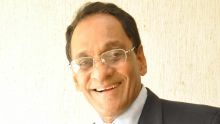
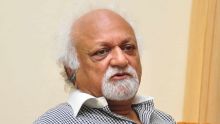
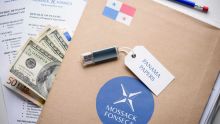
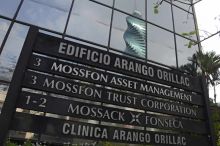
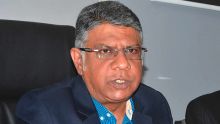

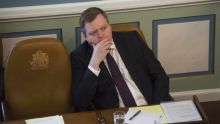
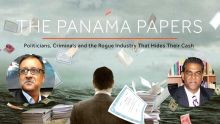
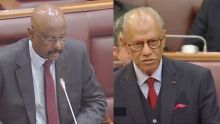
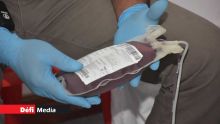
![[Info Soirée] : « La vérité enterrée refait surface »](https://defimedia.info/sites/default/files/styles/square_thumbnail/public/thumbnail_240425.jpg?itok=cCbHkuD5)
![[En images] 5ᵉ Sommet de la COI à Madagascar : Ramgoolam rencontre Macron](https://defimedia.info/sites/default/files/styles/square_thumbnail/public/untitled_design_-_2025-04-24t174206.939.jpg?itok=wUNaZphP)



